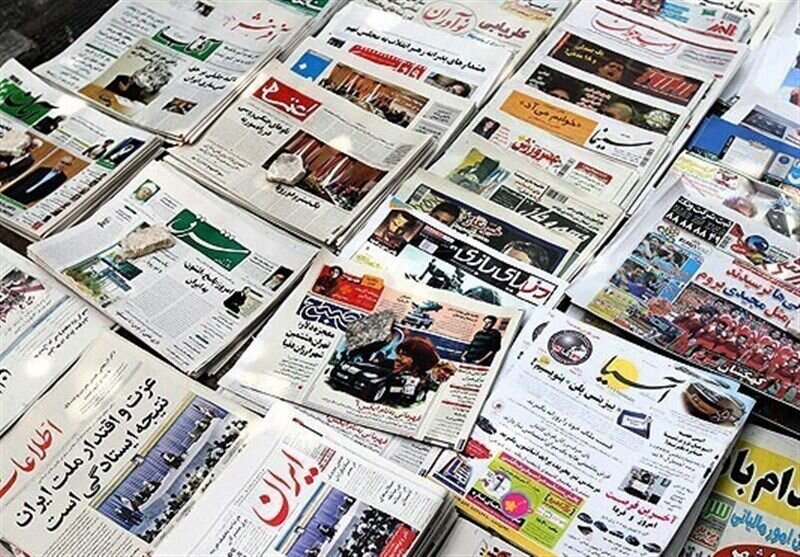The time has come to act

Siasat-e-Rooz dedicated its editorial to the criminal attack on Iran by the United States and wrote: In a major war crime, the U.S. state terrorism launched targeted strikes on Iran’s nuclear facilities in Fordow, Isfahan and Natanz with bunker-busting bombs in violation of international law, NPT to the UN Charter.
Trump proved that his calls for diplomacy and promises are lies, and that diplomacy has practically no meaning for the West. Today, Iran's strategic patience is over due to the miscalculation of the U.S. and the Zionists and a deception by the Europeans, and the time for a decisive response to make the aggressors regret has come. In the meantime, Europe cannot be on the safe side because they have also officially shown that they are partners and facilitators of the crimes of the Zionists and the U.S., and their oil interests in many regions and their companies are a legitimate target in the major economies of in the region. The great men of Yemen are a reliable partner and ally who can change the court of history alongside Iran. Today, diplomacy must move from the West to the East and warn countries such as Russia, China, and India that the West will soon come after them and that Iran is a place that the world needs to protect.
Jam-e-Jam: America's great mistake and its consequences
In a note, Jam-e-Jam addressed the aggressive U.S. attack on Iran and said: The U.S. strikes on Iran's nuclear facilities took place in a situation where, according to U.S. intelligence agencies, Iran's nuclear activities as a signatory to the Nuclear Non-Proliferation Treaty (NPT) were completely peaceful and within the framework of commitments to international law, including Safeguards Agreement. On the other side, the U.S. is the first and only user of a nuclear bomb against the people of a country (Japan). In this regard, it has once again become clear that American officials do not have the authority to make any comments about a peaceful program. The important point is that the United States and other allies of the Zionist regime should know that nations have become more aware of their ill-intentions and will not be deceived by their lies. It will not be too far that Western nations will bring European and American leaders and individuals such as Mr. Grossi, the head of the International Atomic Energy Agency, to court for their lies.
Hamshahri: Options on the table to punish America
In an analysis, Hamshahri discussed possible options to punish America after the criminal attack on Iran and wrote: Speculation about the quality of Tehran’s response to the U.S. attack on Iran's nuclear infrastructure is running high in regional and international media outlets as Iran weighing up various options. Although Iran's missile capability can be considered one of the main options in giving a decisive response to the recent American aggression, the point is that the Islamic Republic can use various tools, such as operations by resistance groups, direct missile attacks on U.S. bases, advanced cyberattacks, accelerate nuclear program, close the Strait of Hormuz, and target economic interests to "punish the aggressor." Iran can take tangible steps to develop its nuclear program as it did in response to the U.S. withdrawal from the JCPOA in the past. Current statistics show that Iran produces a significant amount of uranium with different purities at various levels every month. Now, more than a thousand advanced IR-6 centrifuges and about 700 IR-2M units are in operation.
Shargh: Diplomacy active in state of security emergency
In an article, Shargh analyzed Foreign Minister Abbas Araghchi’s visit to Turkey to participate in the Istanbul summit. It wrote: In the days when developments on the ground and political pressure have simultaneously exposed Iran to one of the most complex crises in recent years, the responsibility of the Foreign Ministry to accurately, effectively and timely reflect the official position has gained double importance. In such circumstances, the participation of the Iranian foreign minister at the Islamic Foreign Ministers’ Meeting is not merely ceremonial, rather it is part of a grand foreign policy strategy to highlight Iran’s official assessment of the developments in the region and the world (following Israel and the United States’ air strikes of Iran’s nuclear facilities). The Istanbul summit provided Iran with an opportunity to use diplomatic channels, amidst the tense military atmosphere, to express its official position in a rights-based format based on regional interaction. The attempt to use the capacities of the Organization of Islamic Cooperation, consulting with key countries, and raising the issue in the form of an emergency meeting shows that the Iranian Foreign Ministry, despite working in a security emergency situation, continues to adhere to the path of dialogue, clarification of Tehran’s position, and utilization of multilateral tools.
Leave a Comment